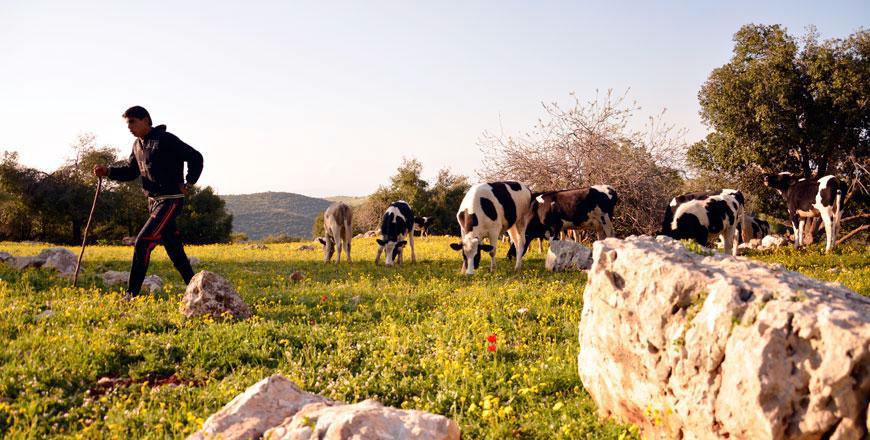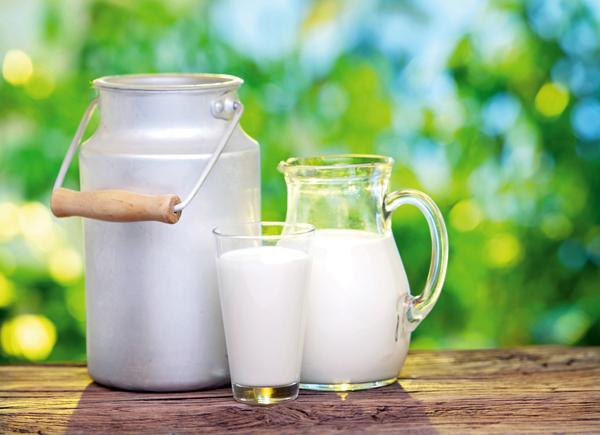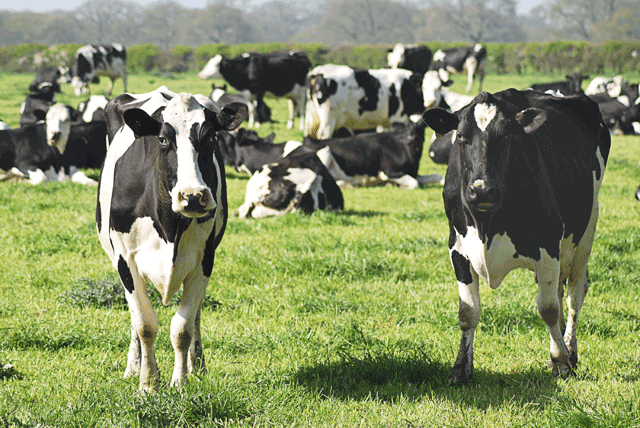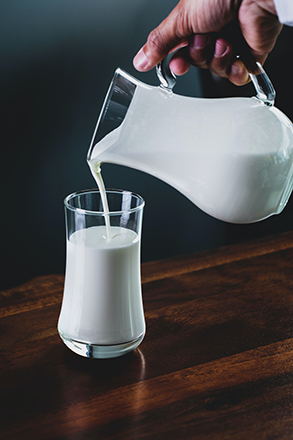You are here
Hike in fodder prices threatens dairy cattle breeding — sector representative
By Mays Ibrahim Mustafa - Apr 19,2022 - Last updated at Apr 19,2022

Jordan has roughly 556 farms with 90,000 cows, according to Al Dhuleil Dairy Cattle Association (File photo)
AMMAN — The “unprecedented” rise in fodder prices over the last three months has hit cow breeders hard, said the president of Al Dhuleil Dairy Cattle Association Ali Ghabayen.
A gradual increase in fodder prices started with the onset of the COVID-19 pandemic, but as the Russia-Ukraine war has developed, prices have skyrocketed “like never before” marking “a roughly 100 per cent increase”, he told The Jordan Times in a recent interview.
One tonne of corn now costs JD370 instead of JD150, and one tonne of soya costs JD560 instead of JD310. Additionally, one tonne of clover has increased from JD220 to 400 and one tonne of silage increased from JD110 to JD180, according to Ghabayen.
He noted that the global rise in fodder prices can partially be attributed to “a natural outcome” of the pandemic.
“Due to lockdowns, the number of cultivated areas dropped, decreasing production. Container freight rates, which are a major component of trade costs, have also surged,” said Ghabayen.
The global increase is only 30 to 40 per cent, but the “monopolisation” of local fodder trade is what has doubled its prices, he added.
Ghabayen also noted his belief that some traders are using the war as “an excuse” to raise prices.
“Corn and soya, which make up 45 per cent of the fodder mix, are imported from the US, South America, Canada and Argentina,” he added, noting that only 5 per cent of fodder is cultivated locally due to the scarcity of water in Jordan.
He added that the fodder currently sold is old stock.
“After contacting the customs department, the association found that the last shipment of soya entered Jordan in July 2021, and the last shipment of corn entered in November 2021,” said Ghabayen.
Last month, the association circulated a decision to all farmers, factories and dairy producers, increasing the price of milk to reach 55 piasters per kilo. Following the circulation, the Minister of Industry, Trade and Supply referred the association to the Public Prosecution, which led the association to retract the price increase.
The purpose of the increase, said Ghabayen, is not to raise profits, but “to cover costs and allow farmers to survive in order to save a sector which is essential to Jordan’s food security”.
“The ministry informed us that a committee will be formed to look into milk and fodder prices after Ramadan,” Ghabayen said, noting that the price of milk is currently 45 to 47 piasters per kilo, and “it has been the same for the past four years”.
He added that one cow costs a farmer JD11 a day and produces roughly 25 kilos of milk per day, whereas four months ago the cost for a cow was JD7.5 to JD8 per day.
Jordan has roughly 556 farms with 90,000 cows, which completely covers the local market’s needs, with Dhuleil constituting 80 per cent of Jordan’s milk production, according to Ghabayen.
He also noted that investment in the milk cattle-breeding sector amounts to over JD2 billion, and the number of direct and indirect workers in the sector is over one million.
“However, if the current situation doesn’t change, by the end of the year many farms will have shut down and production will have dropped no less than 50 per cent,” he added.
While local milk production is roughly 800 to 1000 tonnes per day, the amount of dairy products released into the local market per day amounts to roughly 2000 tonnes of milk, Ghabayen said, noting that these numbers raise suspicions.
“This calls for increased oversight on dairy factories by the Department of Standards and Metrology, as some factories use powdered milk, hydrogenated oil, as well as plant and animal fats in production instead of fresh milk in order to reduce costs,” he added.
Obligatory social security subscriptions for foreign labour alongside the fodder tax, which was imposed in 2018 and varies between 4 to 16 per cent, are also among the sector’s mounting challenges, said Ghabayen, noting that an exemption from fodder tax would help the sector recover.
Related Articles
AMMAN — The recent heatwave has contributed in reducing milk production by 20 per cent, President of the Association of Al Dhuleil Dairy Cat
AMMAN — The Ministry of Agriculture on Sunday decided to temporarily suspend imports of rough fodder from Iraq.The ministry also announced t
AMMAN — Milk yield has decreased by around 20 per cent over the last period, according to stakeholders.“Every day, between 600 to 700 tonnes














